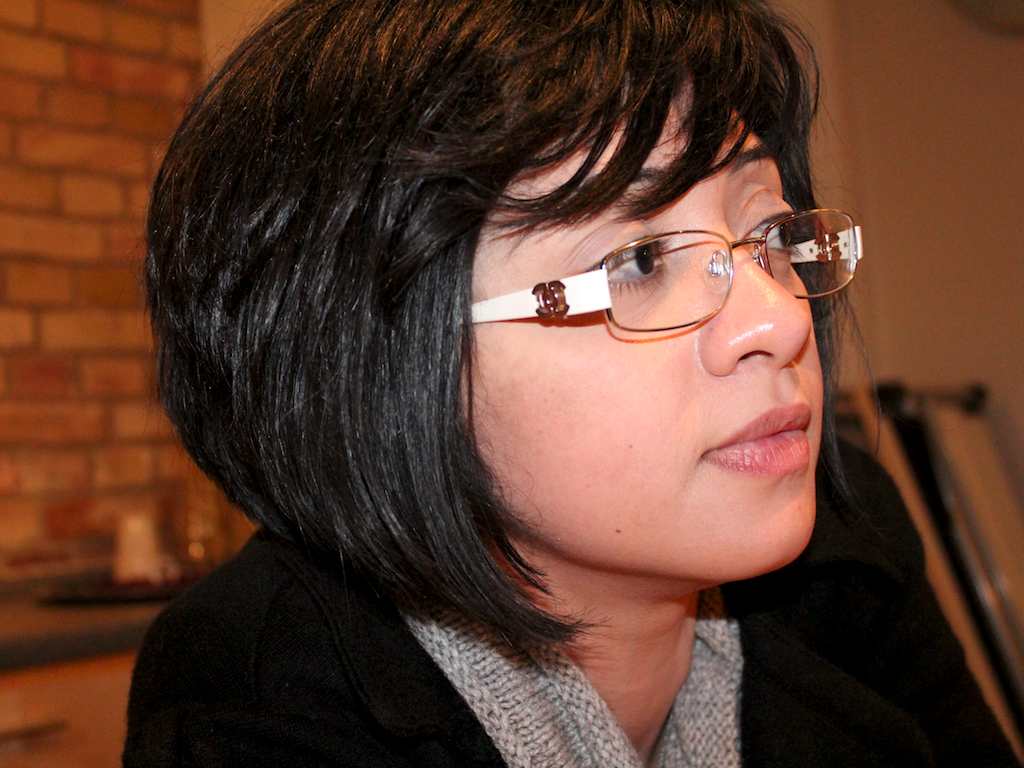
Human rights defender's story: Masa Amir from Egyptian
Discover Masa Amir's journey as a women's rights advocate in Egypt. Influenced by her experiences in the Middle East, she champions gender equality and defends women's rights, overcoming challenges in Egypt's political landscape. Explore her impactful work at international forums like the UN Human Rights Council.
Masa Amir, 25, is an Egyptian researcher for the Women Human Rights Defenders Program at Nazra for Feminist Studies, an organisation that aims to build a feminist movement in Egypt. Most recently, she represented her organisation at the Human Rights Council in Geneva and at the African Commission in Banjul, Gambia.
“In Saudi Arabia I first realized the palpable inequality that is solely based on gender”
Masa’s commitment to gender issues can be traced back to her childhood and youth. Born in Egypt, she spent most of her adolescence in Saudi Arabia before pursuing her undergraduate studies in the United Arab Emirates. Growing up in an environment with such an evident level of inequality between women and men, Masa decided to move back to Cairo and to dedicate her graduate studies as well as her professional career to the issue of women’s rights, taking an international human rights law perspective.
“The attitude born during the revolution, I think, has definitely helped the feminist movement, infusing it with women who might have never considered the possibility of being politically active before”
The Egyptian revolution in 2011 constituted a turning point for Egyptian political and social life, and a significant challenge for the work of human rights defenders and human rights organisations more generally. According to Masa, women in particular felt for the first time that they could and should play an active role in shaping their country’s political future.
“Current Egyptian law is not at all conductive to the presence or the fair representation of women in the political arena”
Regrettably, President Morsi did not introduce the changes which human rights defenders aspired to. On the contrary, laws enshrined in the aftermath of the revolution failto establish a political space that ensures gender equality. In addition, numerous political decisions indicate a degradation of the situation of human rights defenders in general. The Assembly Law, for instance, severely threatens the ability of individuals to peacefully assemble in public space.
“Unfortunately, the situation of women in Egypt has not witnessed improvements under the rule of Mohammed Morsi”
Moreover, recent incidents, during which female protesters were violently targeted by non-state actors, shed clear light both on the complete absence of the state in securing the safety of peaceful demonstrators, as well as the special nature of the risks faced by women human rights defenders. Not only do women human rights defenders challenge the practices of a repressive state, but also, merely by their presence in the public sphere, defy norms relating to women’s ‘natural’ roles, which they are often seen to be challenging. Thus, women on the one hand face violations similar to those faced by their male counterparts, such as imprisonment, but on the other hand are often exposed to violations unique to their identity as women, such as sexual harassment, assault, and threats of rape.
“I believe that the UN mechanisms can play an important role in protecting women defenders”
As part of its strategy to promote and protect the rights of those women human rights defenders, Nazra for Feminist Studies advocates extensively at the Human Rights Council, including through the special procedures. According to Masa, those instruments are valuable and much needed, since they provide a forum for NGOs to address issues of violations committed against women human rights defenders within the international community at the United Nations.
The absence of political will on part of the Egyptian government to break with the past and establish a state dedicated to the promotion and protection of human rights remains a big challenge. The recent efforts by Egypt to restrict human rights by tabling a resolution at the Council on ‘the protection of the family’ reflect the position of the current Egyptian regime. Those steps obviously hamper the work of Nazra and other human rights organisations, as they attempt to gain international backing for restrictive policies applied at home.
At the same time, Masa has exploited the opportunities hidden behind such initiatives. Egypt’s efforts have, paradoxically, opened up space for NGOs to raise gender issues in general, and particularly the situation of women human rights defenders, in the international arena. For instance, Egypt’s use of the language of ‘traditional values’ (an agenda increasingly used to undermine universal rights) provided Nazra with the opportunity to present domestic examples of the ways in which traditional values are used to scale down women’s rights and aggravate the situation of women defenders.
Regional tools can also play a significant role in the work of human rights defenders. Nazra particularly emphasises the importance of ‘cultural sensitivities’, which can often be better addressed in a regional context, such as the African Commission. International mechanisms, such as the Human Rights Council, are composed of states that may be unaware of the ‘cultural sensitivities’ of the African and Arab world. According to Masa, it is therefore important to advocate for human rights through an African forum as well.
To learn more about the work of Masa and Nazra for Feminist Studies, see http://nazra.org/en. Together with ISHR, Nazra is also a member of the Women Human Rights Defenders International Coalition: http://www.defendingwomen-defendingrights.org/.
Alena Jabarine is an Intern with the International Service for Human Rights
